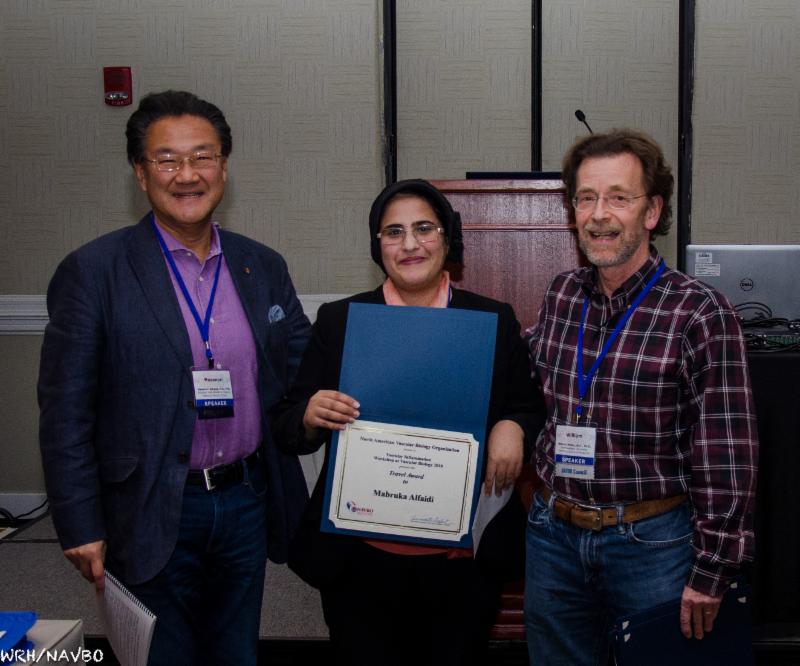Dr. Malbruka Alfaidi is a Postdoctoral Fellow in the Department of Pathology and Translational Pathobiology at LSU Health Sciences Center in Shreveport. She presented a poster at Vascular Biology 2018 entitled, "The Differential Roles of the Adaptor Proteins Nck1 and Nck2 in Shear Stress-Induced Endothelial Activation in vitro and in vivo."

How did you first learn about NAVBO?
I had originally wanted to attend the AHA meeting in 2014 to present my work outside the UK, but my mentor at the time, Dr. Sheila Francis, suggested that the NAVBO conference may be better-suited for what I wanted. Upon my abstract being selected to present an oral presentation, I've been a member since then.
Tell us about the research you presented and your mentor?
I was interested in different aspects of endothelial cell biology and when I attended NAVBO in 2014 I met Dr. Wayne Orr, who was investigating how endothelial cells responded to different types of shear stress. Along with Dr. Martin Schwartz, he defined how the extracellular matrix impacted proinflammatory responses and identified Pak and Nck as central players in these pathways-where Pak/Nck association promoted both NF-kB activation and endothelial cell permeability. We've since identified various roles for different Nck isoforms in response to shear stress in vitro and in vivo.
What was your favorite event at the meeting?
The nanotalks were by far my favorite event - even though the talks were about 5 minutes long, I was able to learn so much.
Did you meet any people at the meeting who influence your research?
I met Dr. Masanori Aikawa, I've always looked up to him. At my poster, I managed to talk and receive feedback from many scientists that have a great impact on my research, including Drs. Yun Fang, Filip Swirski, and Carlos Fernandez-Hernando.
What benefits did the travel award have for you?
The recognition was extremely positive. I received much more attention at my poster than I've had in previous meetings. Furthermore, because of the travel award, I'm now able to go to another meeting to further discuss my work. Without the NAVBO travel award, this would have been much more difficult.
What benefits can a trainee expect from attending NAVBO?
The culture that has been cultivated at NAVBO allows for great interactions between senior scientists and trainees, especially meetings at lunch and dinner times. The trainees get a lot of attention, which helps us move toward the next steps in our careers. In addition to attending meetings, I also feel like I contribute - something that has been very rewarding by having a one on one time during the poster sessions.
What future goals do you have for your work?
Build on the work I presented at the NAVBO meeting and publish the work. Also apply for different transition grants
And, how can NAVBO help you achieve these goals?
By presenting my work at the meeting, I received questions that I didn't consider before - this has allowed me to substantiate some of the results I got. I've also received advice from senior investigators that has allowed me to better strategize my career plans.
Contributor: Arif Yurdagul
|